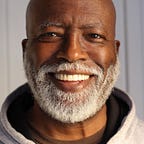THIS IS AMERICA
Funeral Homes and Swimming Pools: How My Parents Gamified Racism
My parents turned the racism around us into a game to help us cope
Hillenbrand Industries is the holding company for two operating businesses. One is Hillrom, which operates in the health care industry, selling and renting hospital beds, furnishings, and other hospital accessories. If you’ve ever needed to spend a night in a hospital, chances are you’ve slept in one of their beds.
Hillenbrand’s other operating business is Batesville Casket Company. Although the name is probably unfamiliar to most people, Batesville is the largest coffin manufacturer in the country, controlling nearly half the U.S. market. Funerals may be uncomfortable to discuss, but it’s a $20 billion industry.
No matter what anyone tells you, just about everything in America has a bit of racist history just below the surface. The funeral business is no exception. Historically, the industry was rife with racism. Even in the 1970s and 1980s, everything about the burial process was segregated — right down to the cemeteries. White funeral homes only buried White people, and Black funeral homes only buried Blacks. The racism wasn’t confined to funeral homes and cemeteries. The companies that depended on funeral homes for…
